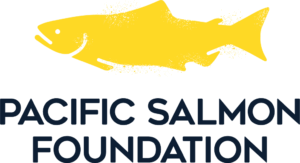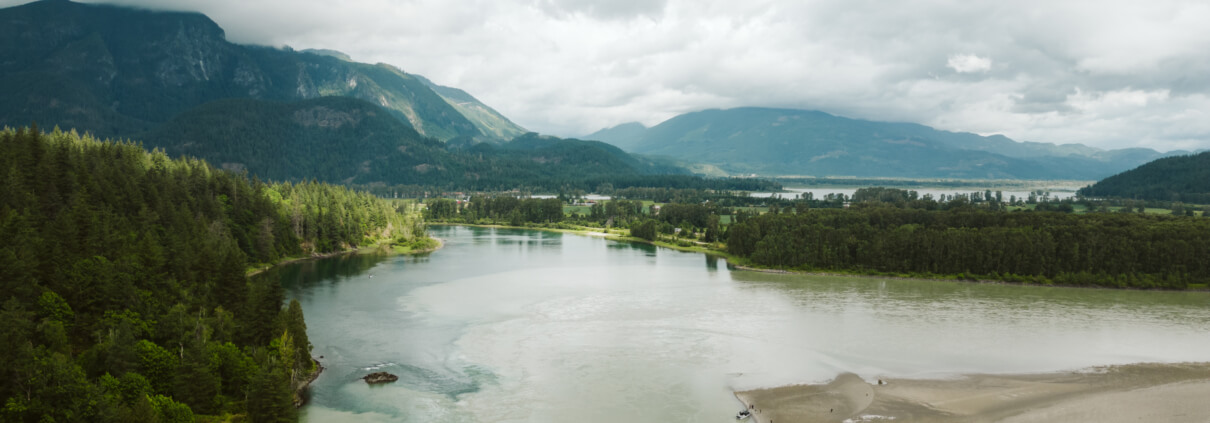A year in review: celebrating salmon wins in 2023
A message from Michael Meneer, President and CEO, Pacific Salmon Foundation
In 2023, the Pacific Salmon Foundation (PSF)’s team levelled up efforts to help Pacific salmon thanks to you – our partners, supporters, and donors.
With your support, we helped thousands of salmon overcome climate hurdles, advanced hundreds of community-led salmon conservation projects, and more! We also continued to influence governments to address issues that our science demonstrates have negative impacts on salmon health and survival – open-net pens, 6PPD-q tire contaminant, and log booms in estuaries. Our work would not be possible without all members of the salmon community working together with a shared vision.
You are helping PSF be a catalyst for salmon recovery and resilience. While many salmon populations are struggling, there were positive stories in 2023, including strong returns of pink and coho salmon.
Discover the impact you’ve made and celebrate some of the notable salmon wins accomplished in 2023.
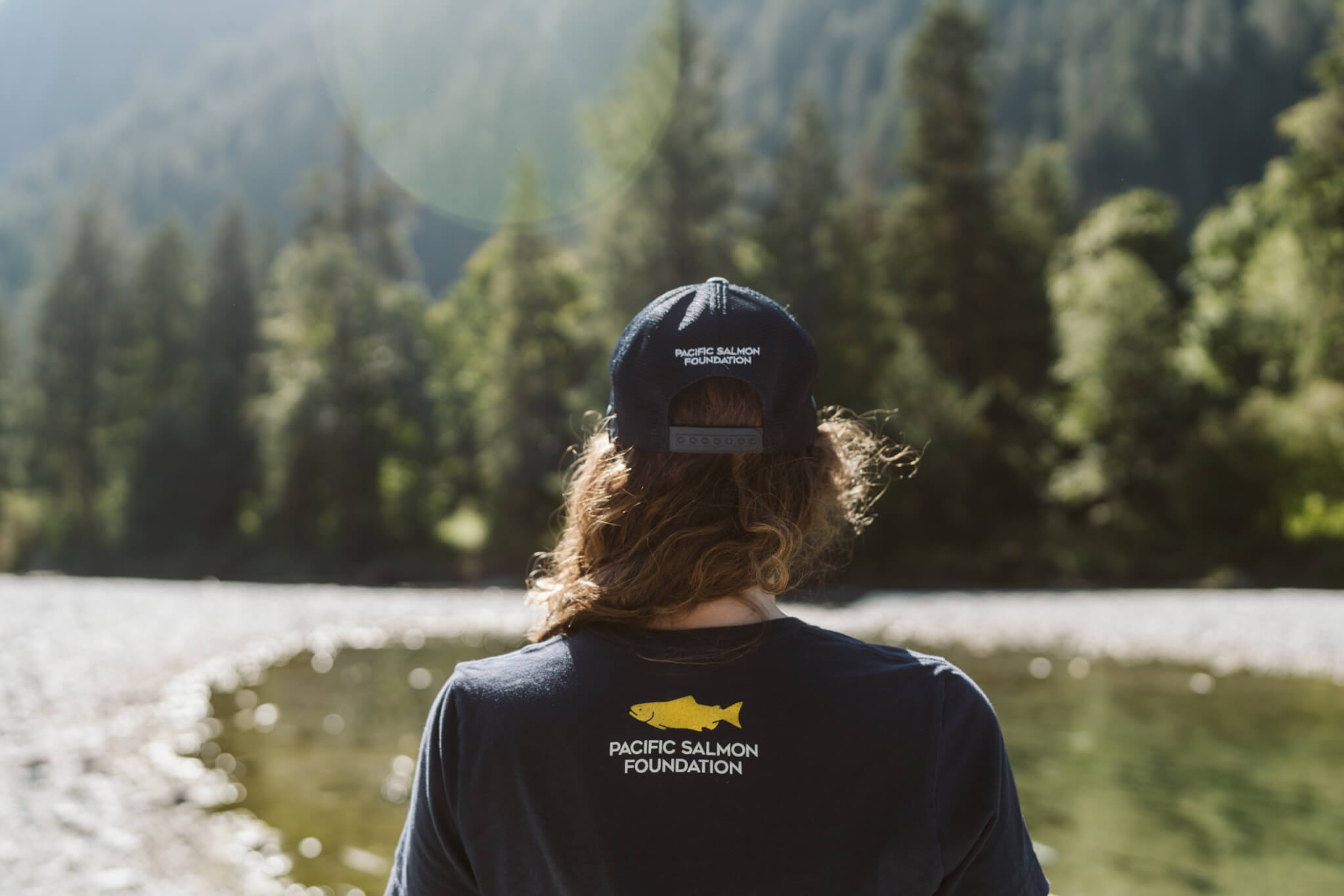
Investing in salmon
Thanks to your unwavering commitment to salmon, government agencies announced significant investments this year toward the well-being of Pacific salmon.
For example, on BC Wild Salmon Day on June 1, the Province of British Columbia announced $17.25 million for wild salmon restoration across the province through PSF and the First Nations Fisheries Council (FNFC) of B.C.
“[This] announcement is more than just an investment in wild salmon. It’s an investment in our communities, in our environment, and in our shared future,” said Jordan Point, executive director of FNFC.
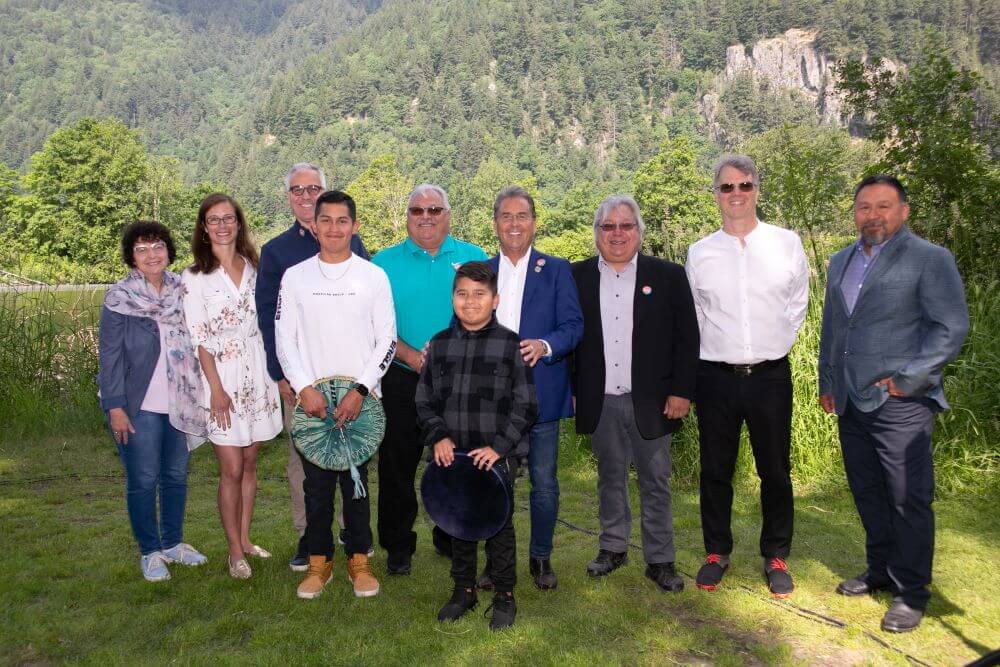
Community members, salmon leaders, and government representatives attend the Province’s $17.25 million wild salmon recovery announcement in Semá:th territory.
This summer and fall, PSF and partners leveraged these funds to grant $300,000 for time-sensitive projects addressing unprecedented drought conditions that impacted B.C. communities and compromised salmon survival and migration.
At Bridge Rapids in the Fraser Canyon, Xwísten (Bridge River Indian Band), Xaxli’p (formerly known as Fountain Band), and Upper Fraser Fisheries Conservation Alliance – supported by PSF, FNFC, DFO, and the Province – teamed up to save migrating steelhead and salmon stuck below the rapids because of low flows. Thanks to you, we were able to help thousands of stranded salmon continue their journey upstream to their spawning grounds.
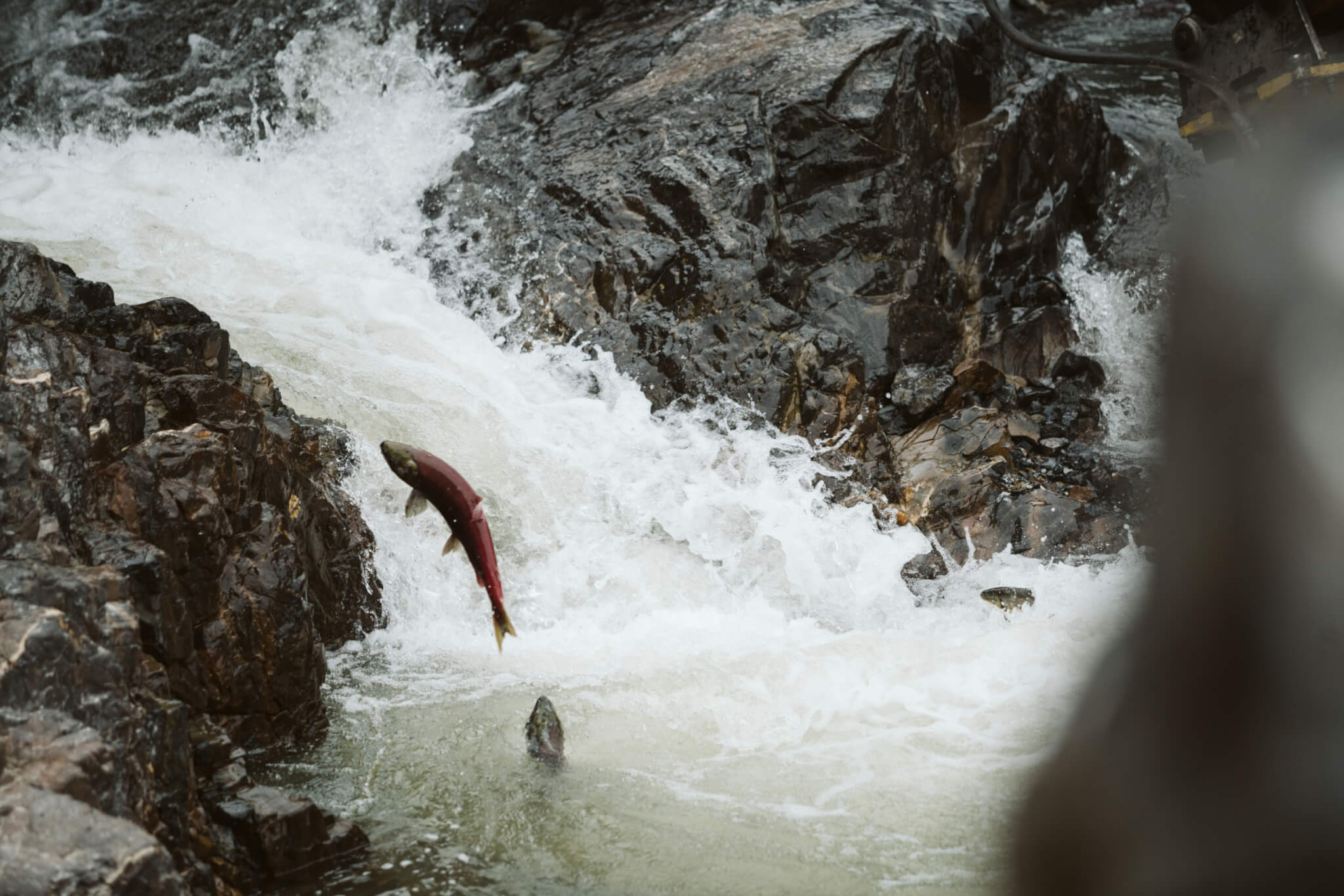
“This area is a challenging migration barrier at the best of times, but it was much worse due to extremely low water conditions,” said Gordon Sterritt, executive director of the Upper Fraser Fisheries Conservation Alliance and PSF board member. “We are confident in the work of the St’at’imc Nation, its member communities, and partners to successfully restore passage, and supported their efforts from a distance by administering emergency funds provided by the Pacific Salmon Strategy Initiative.”
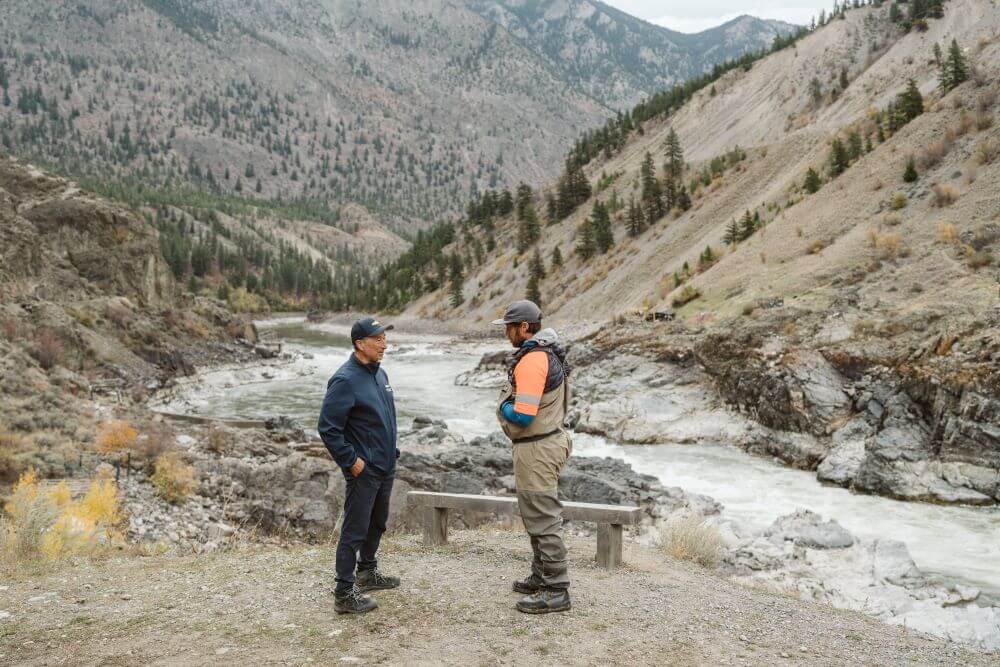
Jason Hwang (VP of Salmon, PSF) Danny O’Farrell (senior biologist, Xwísten – Bridge River Indian Band)
Another major recent investment is the $8.75 million Aquatic Invasive Species Prevention Fund launched by the federal government.
This fund includes a $750,000 grant to help control and manage the spread of invasive European green crabs in the Salish Sea.
“I have seen more than 10,000 green crabs pulled out of Cypre River estuary in Ahousaht territory, critical juvenile salmon habitat, in one day… demonstrating just how intensely overrun these critical nearshore habitats are with European green crabs,” says Crysta Stubbs, science department director with Coastal Restoration Society.
Over the next three years, PSF and Coastal Restoration Society will work with First Nations and communities on Vancouver Island to implement early detection efforts that will ultimately enable us to identify invasive European green crabs and safeguard critical salmon habitat.
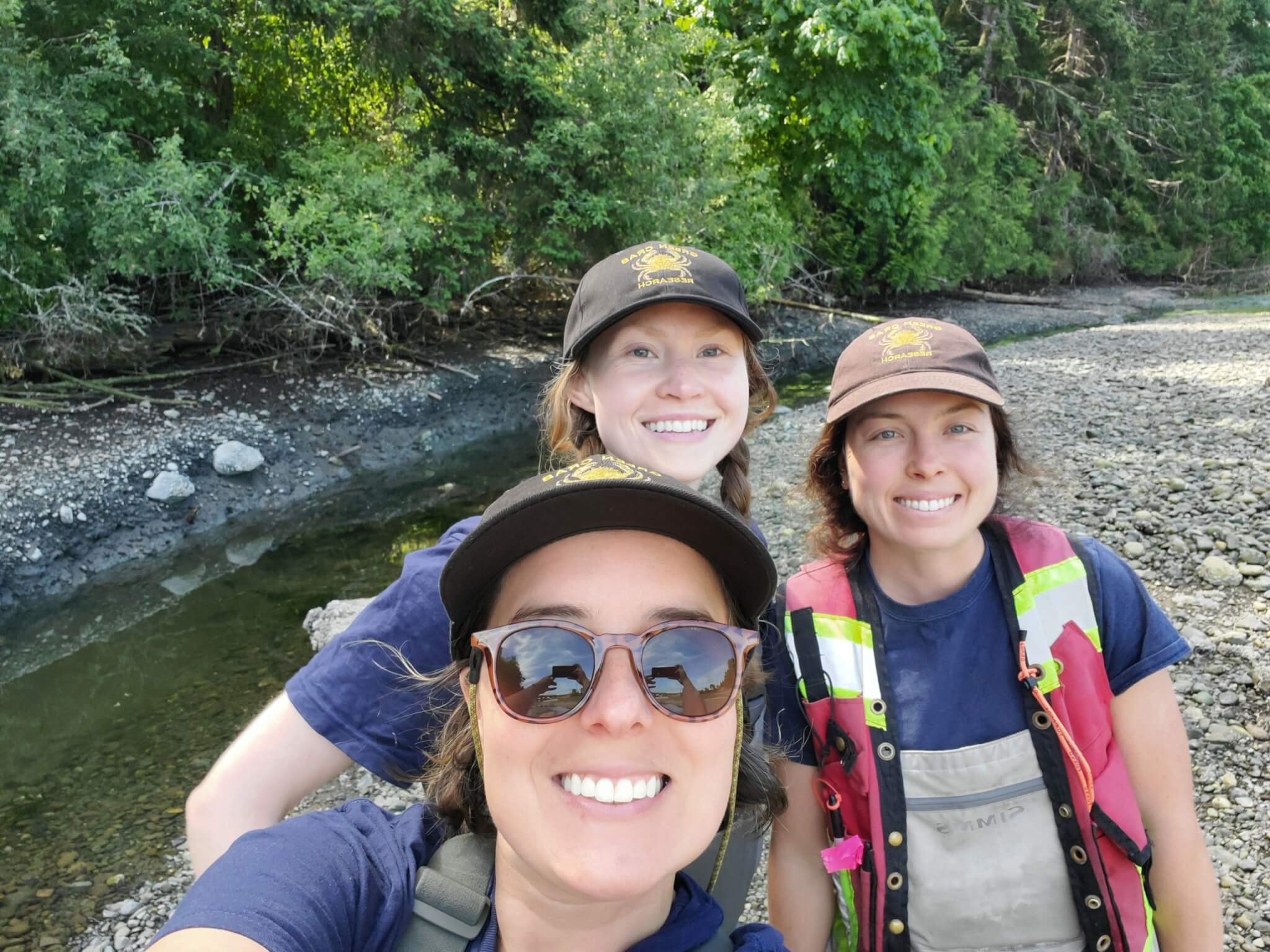
Maria Catanzaro (PSF), Kyla Sheehan (PSF), and Christine Spice (DFO) at a European green crab training session.
Community-powered salmon action
Thanks to your support and donations, we awarded more than $1.8 million in grants to 163 community-led salmon projects in 2023 through our landmark Community Salmon Program.
This year, the Squamish River Watershed Society, a long-time grantee, completed the Squamish Spit removal project in partnership with Squamish Nation and DFO. Together, they removed more than 850 metres of the berm to enable fish passage into the estuary.
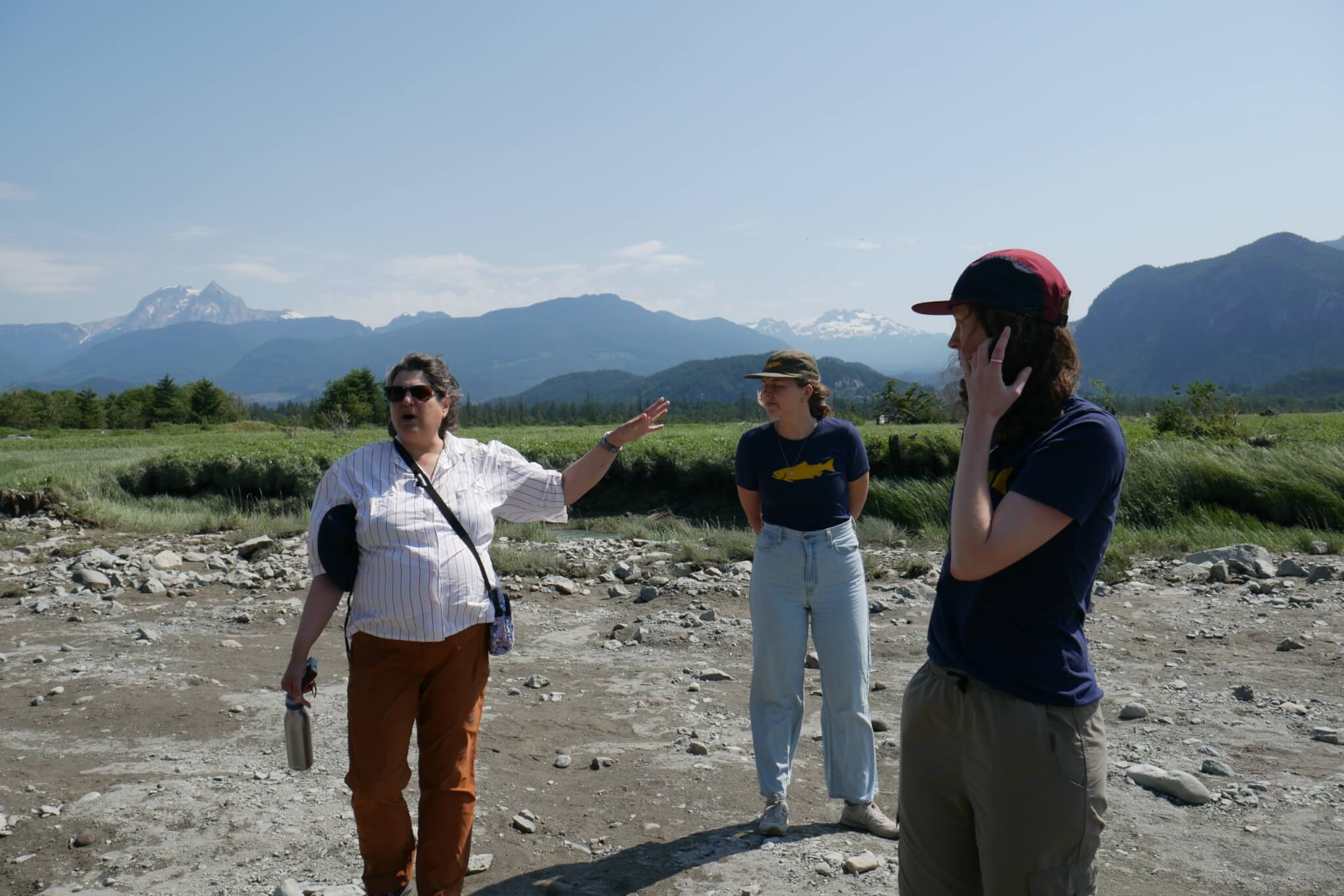
Squamish River Watershed Society touring PSF around the Squamish Spit site in June 2023.
“For the first time since the 1970s, fish coming down the Squamish River were able to make it to the estuary,” says Edith Tobe, executive director of the Squamish River Watershed Society. “In March, we saw herring spawning on the riverside, which we’ve never seen in all of our years.”
Filling knowledge gaps with innovation, data, and research
You helped PSF fill critical knowledge gaps about salmon, their habitats, and their food web.
This year, our Resilient Coasts for Salmon team mapped the shoreline of the East Coast of Vancouver Island from Nanaimo to Comox to identify the extent of shoreline modification. Salmon need healthy shorelines, yet modifications like seawalls, piers, and docks can disrupt habitat for marine wildlife like salmon. The team will continue this work over the coming years.
We also advanced climate resilience for salmon populations with drone technology, with funding from the British Columbia Salmon Restoration and Innovation Fund.
Supporting the Gitanyow Fisheries Authority in the Kitwanga River, part of the Skeena River watershed, and the Secwepemc Fisheries Commission in the Deadman River in Interior B.C., our Salmon Watersheds Program helped use drones to map thermal refuges – naturally-occurring cool spots that can give salmon relief from high stream temperatures.
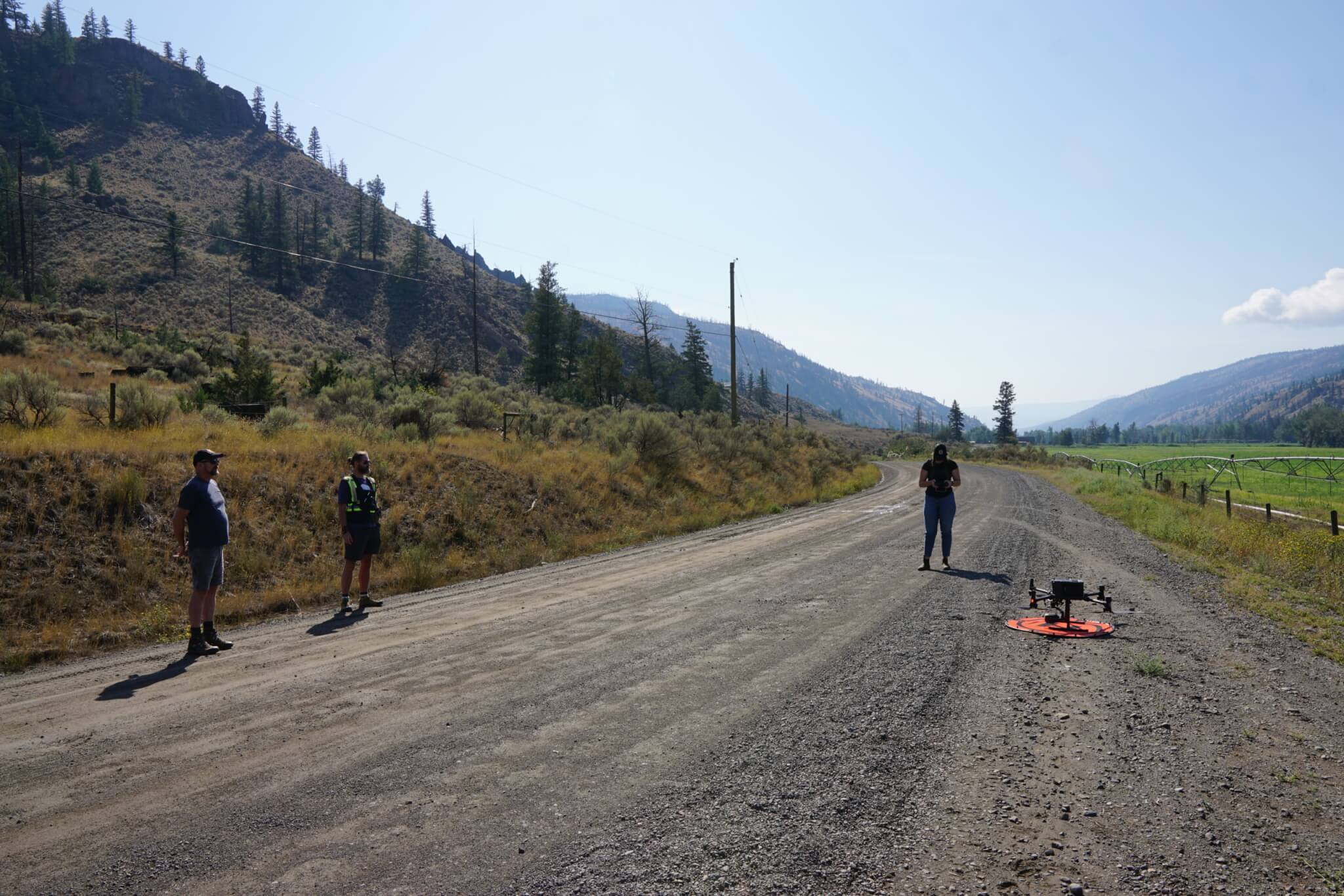
Preparing a drone for takeoff to survey for thermal refuges in the Deadman River.
“Those areas are critically important for salmon, especially in the face of climate change. We have plans to use the information to protect those sites in the coming years,” said Don Ignace, Skeetchestn Natural Resources Operations Manager.
Plus, you made it possible for us to inform decision-making processes with data.
This year, our team contributed to an Ocean Wise Salmon Advisory Panel, using data from the Pacific Salmon Explorer to help recommend sustainable fisheries and food choices by consumers.
You too can access the Pacific Salmon Explorer, a public-access data visualization tool providing information on salmon, their status, and their habitats in B.C.
High-impact decisions for wild salmon
In 2023, we celebrated several decisions that help support collective efforts to reduce risks to wild Pacific salmon.
With you, we applauded two announcements to discontinue open-net pen salmon farm licenses in the Discovery Islands and Broughton Archipelago.
A decade of rigorous, peer-reviewed research by PSF and partners has outlined numerous risks these farms pose to wild Pacific salmon by amplifying and spreading harmful parasites and pathogens.
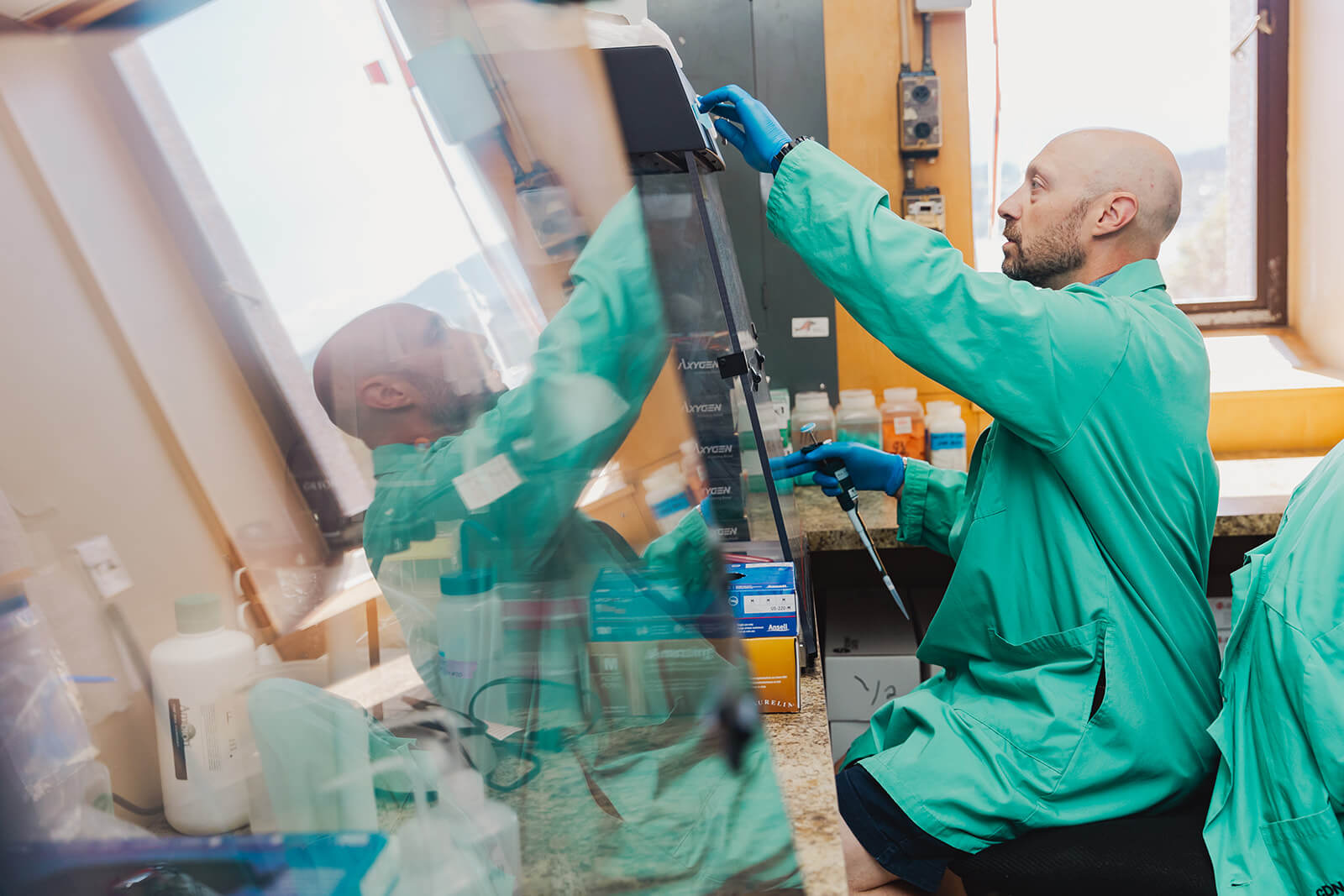
Researchers on PSF’s Salmon Health team study co-effects of marine stressors, including disease agents, sea lice, ocean temperature, and climate pressures.
With these decisions, nearly 75 per cent of active open-net pen salmon farms along the main Fraser River salmon migration route have been closed down.
PSF will continue to communicate our science and advocate for the removal of open-net pen salmon farms by 2025, the date set by the federal government for this needed transition.
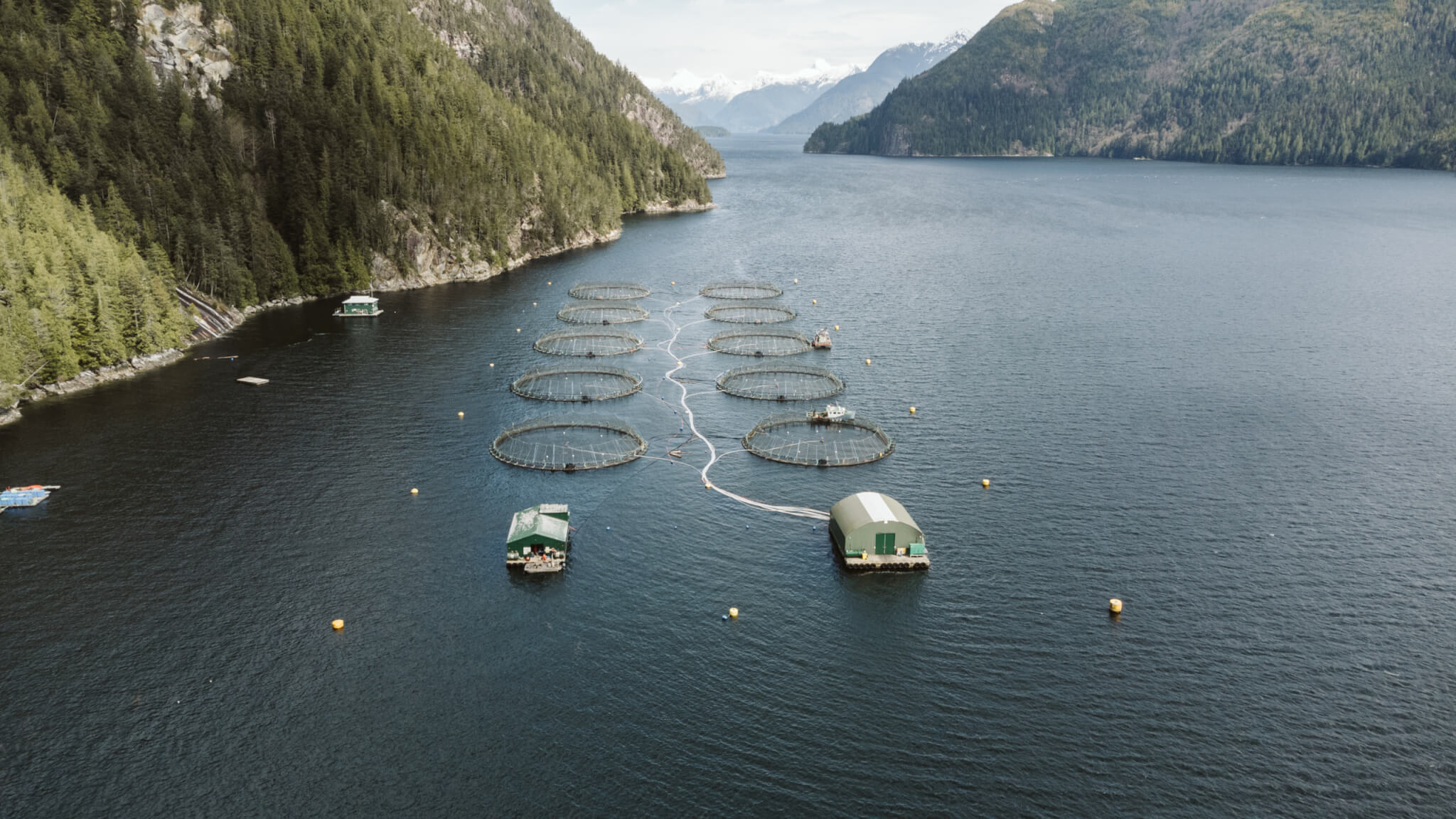
British Columbia Premier David Eby recently acknowledged that the “social licence for [open-net pen fish farms] – that sit in the ocean and cause the death of other fish – has expired in British Columbia. We know that those need to move to closed containment systems.”
PSF extends gratitude to countless individuals and organizations – including the Broughton Aquaculture Transition Initiative (BATI) program – for working tirelessly to inform these decisions.
Cross-border salmon action
With people like you dedicated to Pacific salmon along the coast, we catalyzed cross-border partnerships from Alaska to California.
Long Live the Kings and PSF convened representatives from Alaska, British Columbia, Washington, California, and Idaho to scope a working transboundary climate initiative for Pacific salmon. Leaders from Indigenous, federal, state, and provincial governments, as well as environmental non-profits, met in-person twice this year to discuss climate change impacts on salmon, pulling together ideas on what efforts have been trialed in other jurisdictions to support fish adapt to climate change and discuss what could be applied in our region.
With your support, we plan to keep this momentum going with further meetings in 2024 and beyond.
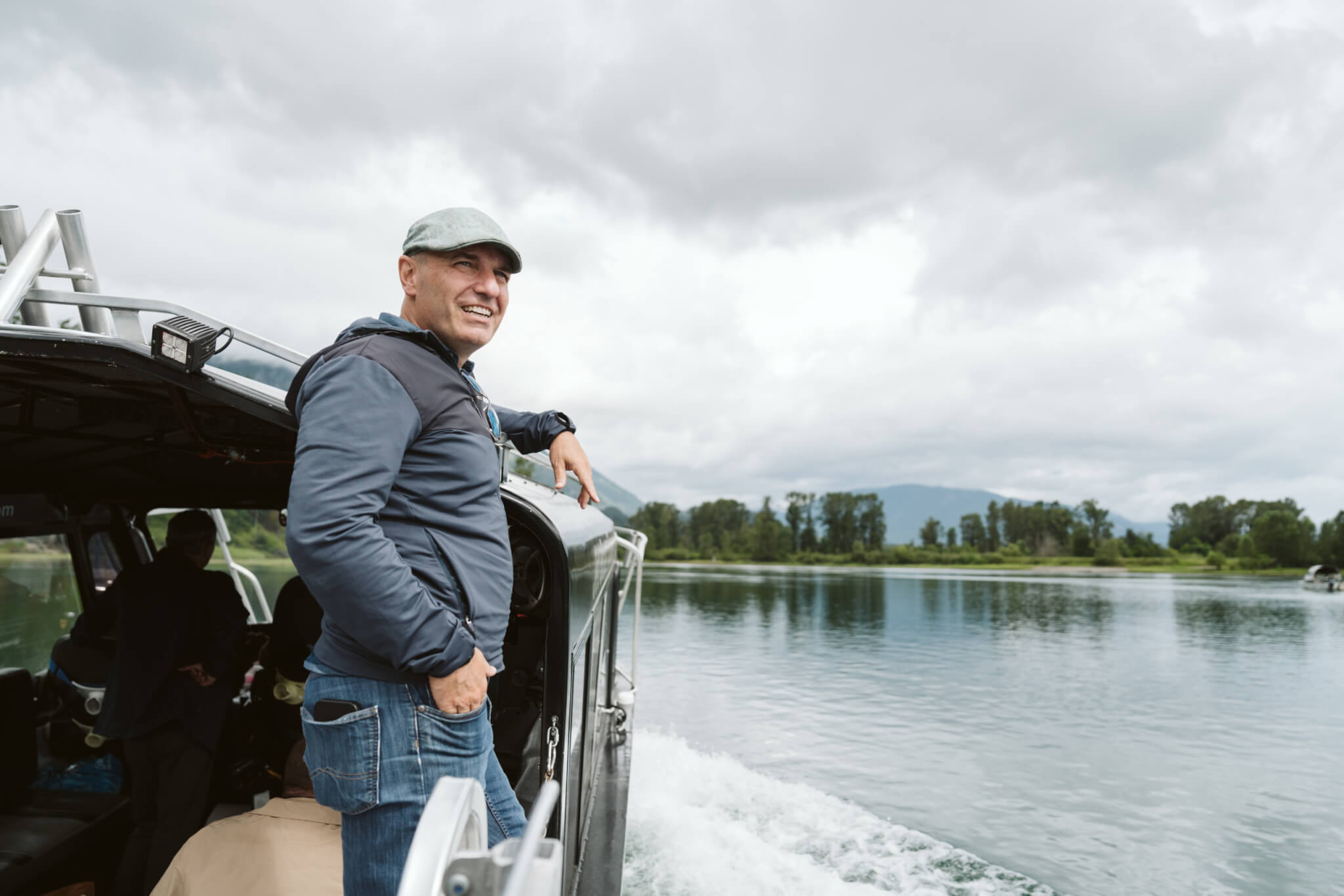
This year, through a forum called the Pacific Salmon Action Dialogues, we started exploring the concept of a new ‘made-in-B.C.’ salmon recovery strategy with the First Nations Fisheries Council of B.C. Our team has begun developing a working model that aims to improve coordination among salmon recovery efforts, with the ultimate goal of improving conservation outcomes for B.C. salmon populations. In 2024, we’re looking forward to taking the next steps to advance this provincial salmon recovery strategy.
Champions for Pacific salmon
We are all people for salmon. At PSF, we’re salmon first, salmon always. With your help, we’ve been fortunate to turn that philosophy into action.
Thank you for joining us as a champion for Pacific salmon. We look forward to even more good work in 2024.
Sincerely,

Michael Meneer
President & CEO
Pacific Salmon Foundation
